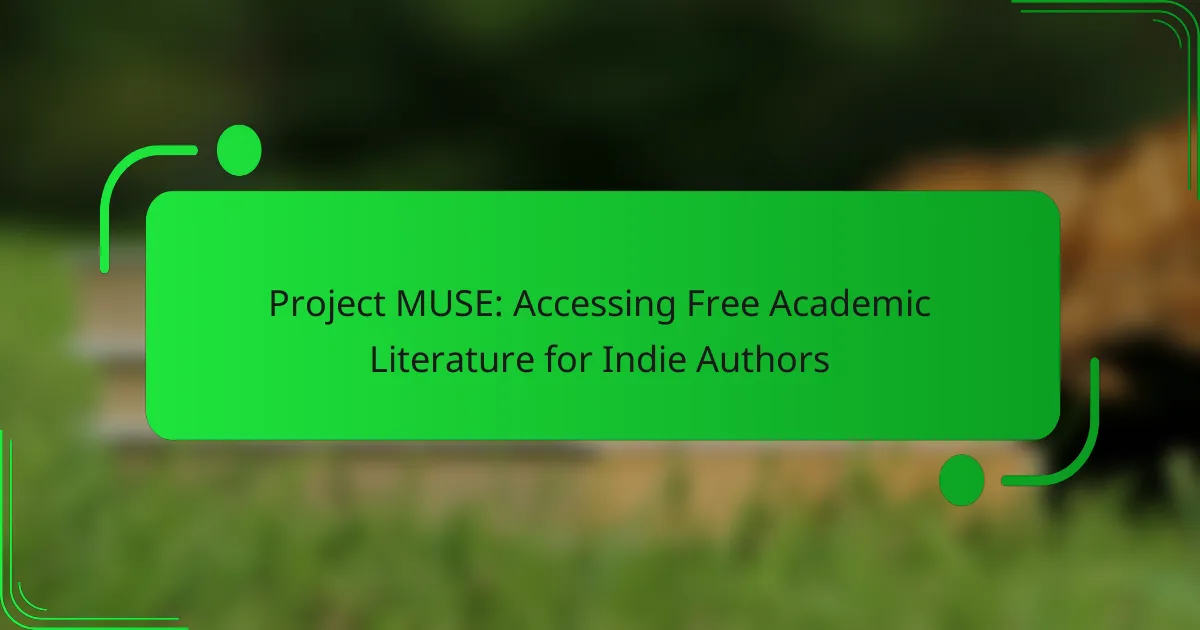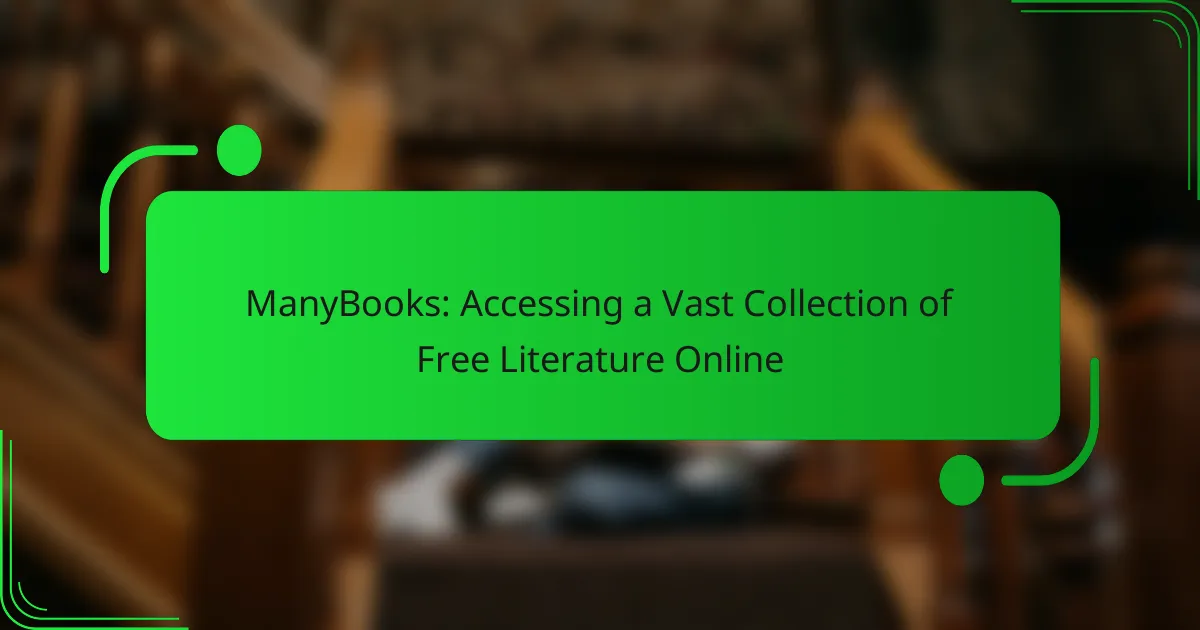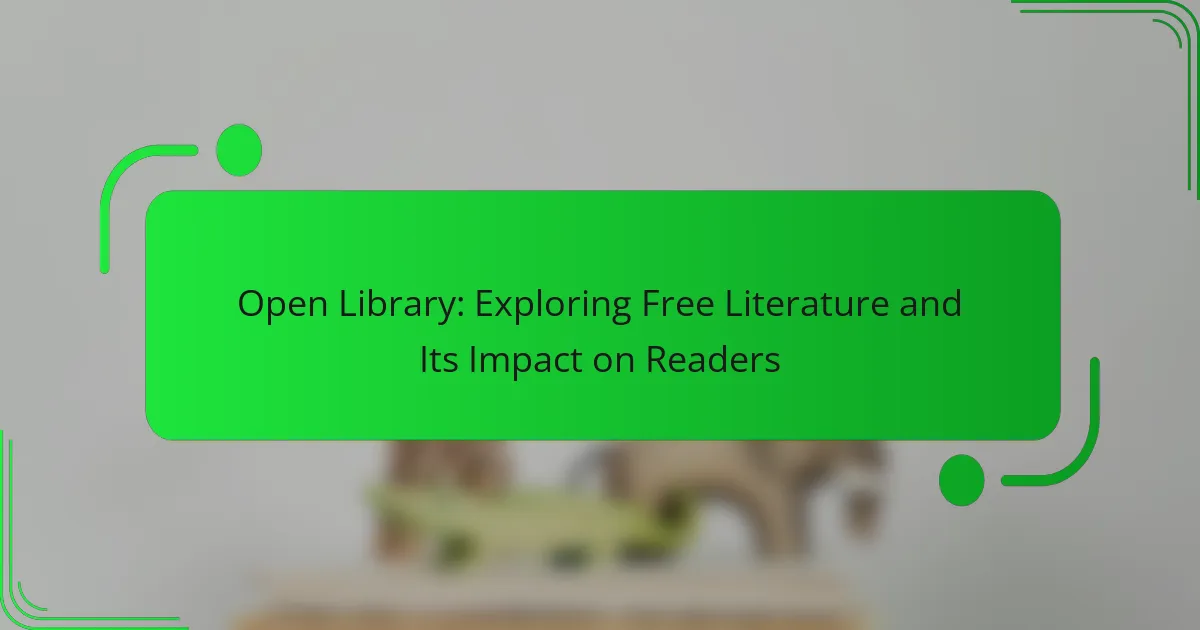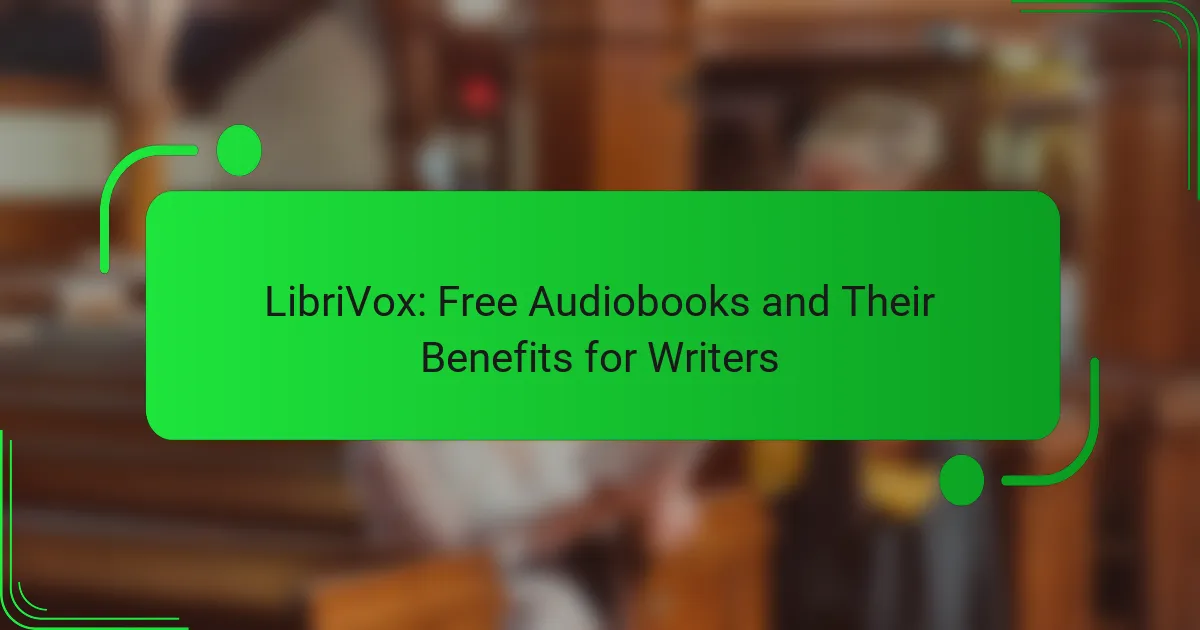Indie authors often struggle to gain visibility in a crowded market. BookBub offers a powerful solution through free book deals that attract a large, targeted audience. This article explores how to effectively utilize BookBub promotions, the challenges authors face, and strategies for optimizing listings to enhance exposure and build readership.
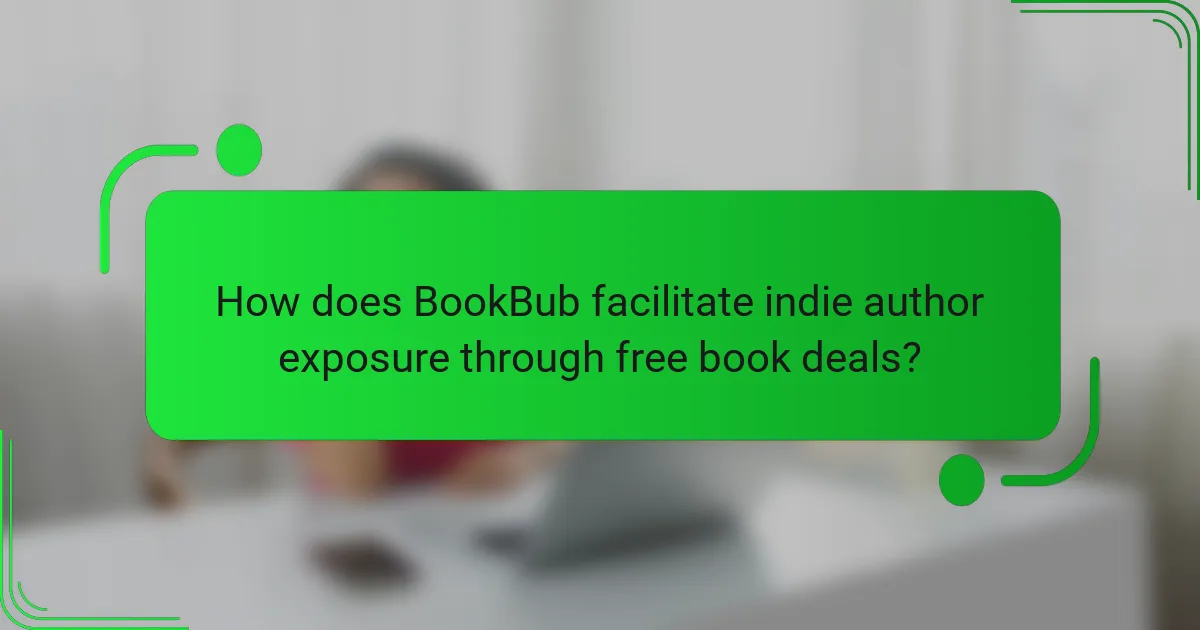
How does BookBub facilitate indie author exposure through free book deals?
BookBub facilitates indie author exposure through free book deals by providing a platform that reaches a large audience. Authors can submit their books for promotion, which can lead to increased visibility and sales. The service curates deals based on reader preferences, ensuring targeted exposure. This approach helps authors gain traction and build a readership. Additionally, the promotional deals can lead to higher rankings on platforms like Amazon, further enhancing discoverability.
What are the key features of BookBub’s free book deal program?
BookBub’s free book deal program offers key features to enhance indie author visibility. Authors gain access to a large audience, with targeted promotions reaching readers interested in specific genres. The program facilitates the discovery of new titles through daily email alerts sent to subscribers. Authors can track performance metrics, including downloads and engagement rates, allowing for data-driven marketing strategies. Additionally, the program fosters community engagement by connecting authors with readers, enhancing overall book promotion effectiveness.
How can authors apply for free book deals on BookBub?
Authors can apply for free book deals on BookBub by submitting their books through the BookBub Partners dashboard. Follow these steps for a successful application:
1. Create a BookBub Partners account.
2. Select the book you want to promote.
3. Choose the “Free Book Deal” option.
4. Fill out the required information, including book details and promotional dates.
5. Submit your application for review.
BookBub evaluates submissions based on factors like book quality, genre, and prior performance. A well-crafted application increases the chances of approval and enhances author visibility.
What types of books are most successful on BookBub?
Books that are most successful on BookBub often belong to specific genres, particularly romance, mystery, and science fiction. These genres attract a wide readership and tend to have strong engagement rates. Romance novels frequently dominate promotions due to their large fan base and high sales potential. Mystery and thriller books also perform well, appealing to readers seeking suspense and intrigue. Additionally, non-fiction titles, especially self-help and personal development, have gained traction, reflecting a growing interest in practical knowledge.
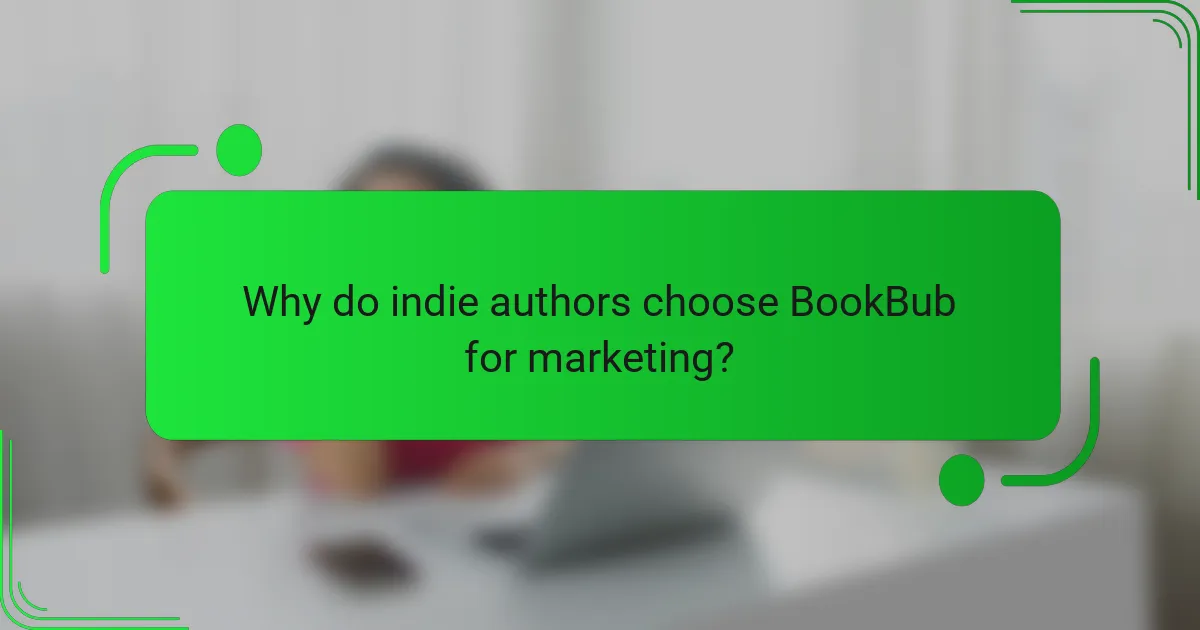
Why do indie authors choose BookBub for marketing?
Indie authors choose BookBub for marketing because it effectively increases their visibility and book sales. BookBub’s free book deals attract a large audience, offering significant exposure. This platform has a dedicated user base that actively seeks new reads, making it an ideal space for indie authors to reach potential readers. Additionally, BookBub’s promotional strategies can lead to higher rankings on retail sites, further enhancing an author’s visibility. The platform’s ability to target specific genres ensures that authors connect with readers who are genuinely interested in their work.
What are the benefits of using BookBub for indie authors?
Using BookBub for indie authors significantly enhances visibility and sales. The platform offers targeted exposure to a large audience, increasing the chances of attracting new readers.
1. Wide Reach: BookBub has millions of subscribers, providing access to a vast pool of potential readers.
2. Cost-Effective Marketing: Free book deals can lead to increased downloads and subsequent sales of other titles.
3. Reader Engagement: Subscribers actively seek deals, resulting in higher engagement rates with promotions.
4. Genre-Specific Targeting: Authors can target specific genres, ensuring their book reaches interested readers.
5. Boosted Rankings: Increased downloads can improve a book’s ranking on retail platforms, enhancing overall visibility.
6. Long-Term Benefits: A successful promotion can lead to sustained sales beyond the promotional period.
How does BookBub compare to other book promotion platforms?
BookBub offers extensive exposure through free book deals, making it a strong contender among book promotion platforms. Compared to others, BookBub’s unique attribute is its large subscriber base, which exceeds 1 million readers. This reach significantly boosts visibility for indie authors. Additionally, BookBub’s curated approach ensures that promotions target engaged readers, enhancing conversion rates. In contrast, other platforms may lack such a focused audience, potentially diminishing promotional effectiveness. Overall, BookBub stands out for its effectiveness in connecting authors with a dedicated readership.
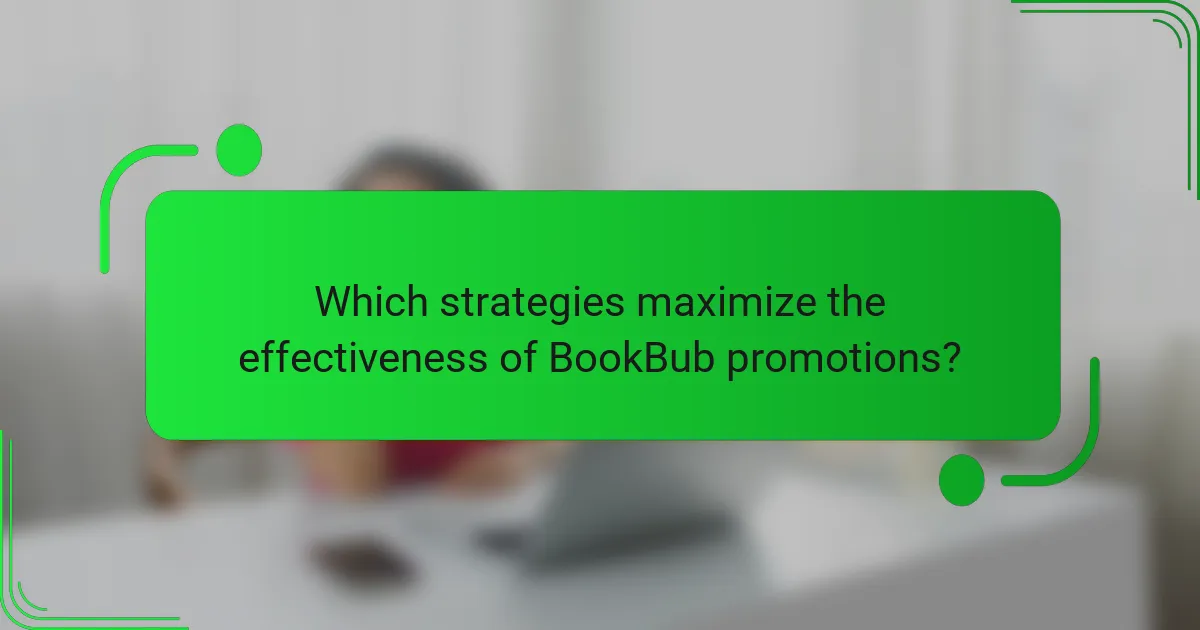
Which strategies maximize the effectiveness of BookBub promotions?
Utilizing BookBub promotions effectively requires strategic planning and execution. Focus on timing, genre targeting, and audience engagement.
1. Schedule promotions during peak reading seasons, such as summer or holidays, to maximize visibility.
2. Select the right genre categories that align with your book to reach the most relevant audience.
3. Create an engaging book description and cover design that attracts clicks and encourages downloads.
4. Leverage social media and email marketing to build anticipation before the promotion.
5. Monitor performance metrics post-promotion to refine future strategies.
By implementing these strategies, indie authors can enhance their exposure and potentially increase long-term readership.
What timing considerations should authors keep in mind for promotions?
Authors should consider timing strategically to maximize exposure during promotions. Key timing factors include aligning promotions with significant dates, such as holidays or events, to capture reader interest. Additionally, analyzing peak reading seasons can enhance visibility. For example, launching a free book deal during summer vacation may attract more readers. Monitoring competitor promotions can also provide insights into optimal timing. Lastly, consider the duration of the promotion; a well-timed, short-term offer can create urgency and drive downloads.
How can authors leverage social media alongside BookBub deals?
Authors can effectively use social media to amplify the reach of their BookBub deals. By sharing engaging content related to their free book promotions, authors can attract a larger audience.
Utilizing platforms like Twitter, Instagram, and Facebook allows authors to create buzz around their deals. They can post eye-catching graphics, share reader testimonials, and engage with followers through polls or questions.
Timing is crucial; authors should announce their BookBub deals on social media just before the promotion begins. This strategy maximizes visibility and encourages readers to take immediate action.
Collaborating with other authors or influencers can further enhance exposure. By cross-promoting each other’s deals, they can tap into new audiences and generate more interest.
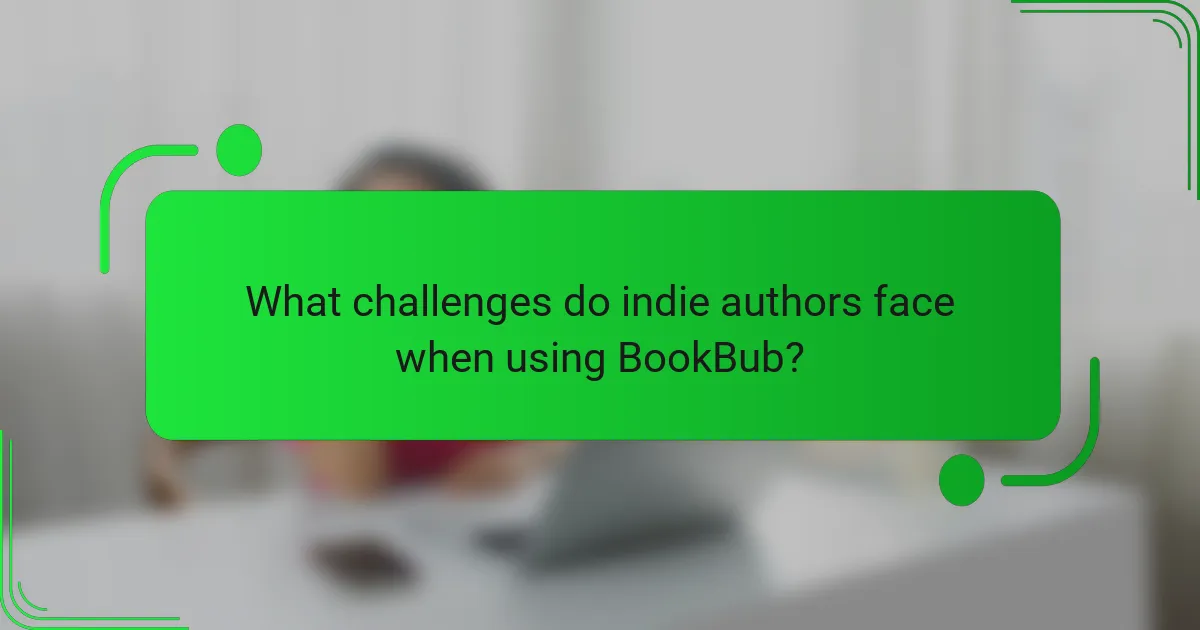
What challenges do indie authors face when using BookBub?
Indie authors face several challenges when using BookBub for exposure. Competition is fierce, as many authors vie for limited promotional slots. Additionally, authors may struggle with understanding BookBub’s audience, which can affect their targeting strategy. Cost can be a barrier, as promotions can be expensive, and not all authors see a return on investment. Furthermore, authors may find it challenging to create compelling book descriptions that resonate with readers. Lastly, navigating the platform’s guidelines and requirements can be complex, leading to potential rejections of submissions.
What common pitfalls should authors avoid during their promotions?
Authors should avoid common pitfalls such as neglecting their target audience, failing to create an engaging book description, and overlooking the importance of social media promotion. These mistakes can diminish the effectiveness of BookBub promotions.
Neglecting the target audience can result in misaligned marketing efforts, leading to poor engagement. Crafting an engaging book description is crucial; a lackluster description may fail to attract potential readers. Additionally, not leveraging social media can limit visibility, as platforms are essential for reaching wider audiences.
Finally, authors should be wary of setting unrealistic expectations regarding sales and rankings. Understanding the promotion’s impact requires realistic goals, which can help maintain motivation and assess success accurately.
How can authors measure the success of their BookBub campaigns?
Authors can measure the success of their BookBub campaigns through metrics such as downloads, sales rank changes, and new newsletter sign-ups. Tracking these indicators helps evaluate exposure and engagement.
1. **Download numbers**: Monitor the total downloads during the campaign period.
2. **Sales rank**: Observe changes in the book’s sales rank on platforms like Amazon post-campaign.
3. **Conversion rate**: Analyze the percentage of readers who purchased the book after downloading.
4. **New subscribers**: Count the increase in newsletter sign-ups attributed to the campaign.
5. **Reviews and ratings**: Evaluate any changes in the number of reviews or overall rating.
6. **Social media engagement**: Measure interactions and shares related to the campaign across platforms.

Which unique attributes set BookBub apart from other platforms?
BookBub stands out due to its unique focus on curated book deals specifically for indie authors, extensive user engagement, and personalized recommendations. These attributes foster a supportive environment for emerging writers. Additionally, BookBub’s large subscriber base enhances visibility for indie titles, offering a significant promotional advantage. The platform’s data-driven approach allows for targeted marketing strategies, which is rare among similar services.
How does BookBub’s algorithm affect visibility for indie authors?
BookBub’s algorithm significantly enhances visibility for indie authors by prioritizing targeted promotions. It analyzes reader preferences and engagement to showcase relevant free book deals, increasing discoverability. This targeted approach allows indie authors to reach a broader audience, maximizing exposure and potential sales. Additionally, the algorithm’s emphasis on user interaction metrics ensures that quality content rises to the top, benefiting authors with compelling narratives.
What exclusive features does BookBub offer to its users?
BookBub offers exclusive features like personalized book recommendations, targeted email alerts for deals, and a user-friendly interface for discovering new titles. These features enhance indie author exposure by connecting them with avid readers. Users benefit from daily deals tailored to their preferences, increasing the visibility of indie titles. Additionally, BookBub’s promotional services include featured deals that can significantly boost an author’s sales and readership.
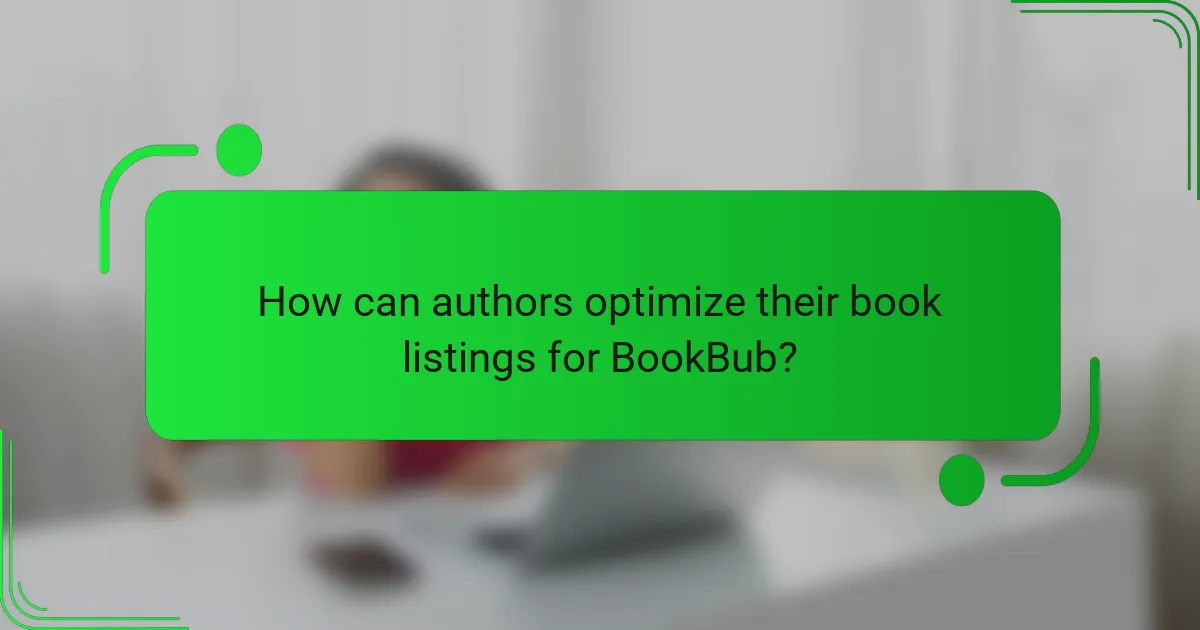
How can authors optimize their book listings for BookBub?
Authors can optimize their BookBub listings by focusing on compelling book descriptions, eye-catching cover designs, and targeted keywords. A strong call-to-action encourages clicks, while selecting the right promotional dates maximizes visibility.
1. Craft engaging descriptions that highlight unique story elements and reader benefits.
2. Use professional cover art that stands out in BookBub’s listings.
3. Research and incorporate relevant keywords to enhance discoverability.
4. Schedule promotions during peak reading periods for increased exposure.
What elements contribute to an attractive book cover on BookBub?
An attractive book cover on BookBub features a clear, eye-catching design that resonates with the target audience. Elements include a compelling title, engaging imagery, and a professional layout. The color scheme should evoke the genre’s mood, while typography must be legible and appealing. Unique attributes like custom illustrations or innovative design techniques can further enhance visibility. A well-crafted cover can significantly boost an indie author’s exposure and attract potential readers.
How important are book descriptions and keywords in promotions?
Book descriptions and keywords are crucial for promotions as they directly influence visibility and engagement. Effective descriptions attract potential readers, while optimized keywords enhance searchability. Together, they significantly increase the chances of indie authors gaining exposure through platforms like BookBub. Descriptions should clearly convey the book’s essence, while keywords should align with target audience searches. This strategy maximizes promotional efforts and can lead to higher sales and readership.
What are expert tips for crafting compelling book blurbs?
To craft compelling book blurbs, focus on clarity and emotional engagement. Start with a strong hook that captures attention. Highlight the unique aspects of your story, including character dilemmas and stakes. Use concise language to convey the plot while maintaining intrigue. Incorporate reader expectations by aligning with genre conventions. Finally, include a call to action that encourages readers to explore further.
What common mistakes should authors avoid when setting up their BookBub promotions?
Authors should avoid common mistakes such as inadequate planning, neglecting audience targeting, and failing to optimize their book’s metadata. These errors can diminish the effectiveness of BookBub promotions.
First, ensure your promotional timing aligns with your audience’s reading habits to maximize exposure. Second, accurately target your ads to reach the right readers, as misalignment can lead to wasted resources. Third, optimize your book’s metadata, including cover design and description, to attract potential readers effectively.
Additionally, avoid setting unrealistic expectations regarding sales and rankings post-promotion. Understanding that results may vary helps maintain a realistic outlook. Lastly, failing to engage with readers post-promotion can hinder long-term success; building relationships is essential for future promotions.
